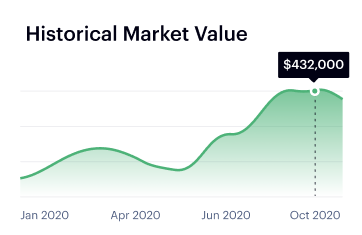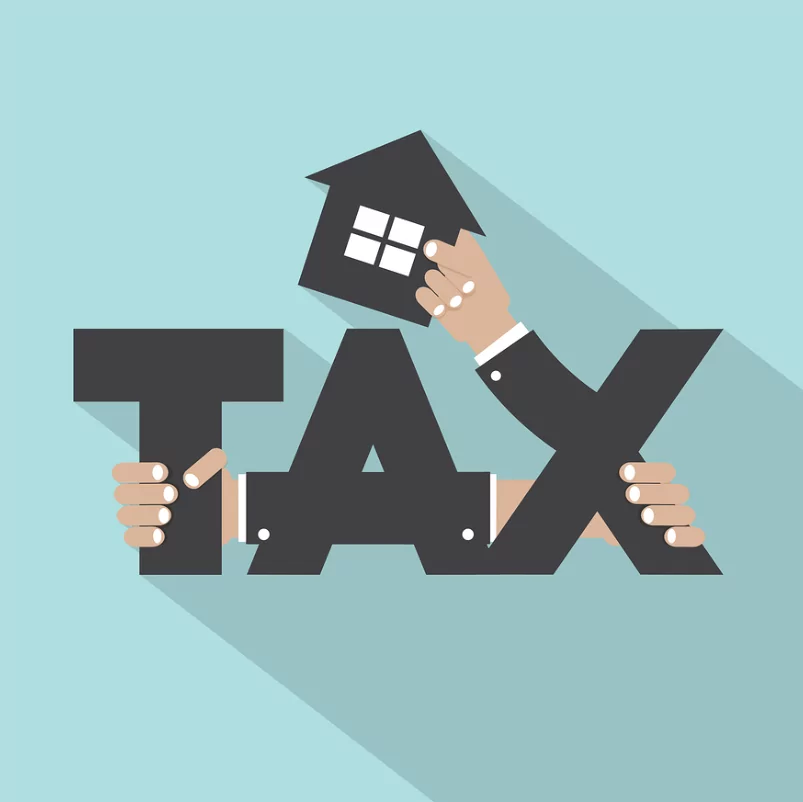

Managing expenses like mortgage interest for your rental property can be challenging for any landlord or rental property owner. Our guide will walk you through using these interest payments to lower your taxable income, providing financial relief.
Read on to learn how rental property mortgage interest deductions work, their limits, and their insights into various aspects.
The Home Mortgage Interest Deduction (HMID) is a tax benefit primarily for homeowners. As a homeowner, you can elect to itemize rather than take the standard rental property tax deductions on your property taxes and claim the interest on the first $750,000 of mortgage principal you’ve borrowed on your Schedule A. Depending on your circumstances, the home mortgage interest deduction can save you a significant amount on your income taxes.
You can’t take the HMID on your rental properties as a landlord or rental property owner. But that’s actually a good thing because you can deduct the mortgage interest on your rental property as a business interest expense on your Schedule E. This offers much more flexibility and doesn’t require you to itemize your Schedule A.
For instance, you buy a rental property for $600,000 with a $400,000 mortgage. In the first year, you pay $20,000 in interest and earn $60,000 in rental income. You can deduct $20,000 in interest from your rental income, reducing your taxable rental income to $40,000. Your lender will provide you with Form 1098 annually, detailing the mortgage interest you’ve paid, which helps claim this deduction.
You can lower your taxable income by taking advantage of the rental property mortgage interest deduction, which does not apply to investment properties.
Investment property mortgage interest deductions impact your tax return. Here’s a breakdown of mortgage interest deduction scenarios:
This includes interest on mortgages for a variety of primary residences, such as houses, condos, and even houseboats, as long as they have essential living facilities. It’s applicable even in cases like divorce settlements.
Those receiving housing allowances from military or ministry services can deduct the interest they pay on their mortgage.
When deducting mortgage interest on a second home, the rules depend on the property’s use:
The cost of mortgage points, and prepaid interest, can be deductible. These points must be paid directly to your lender and can be deducted either immediately or over the loan’s duration.
Charges for late mortgage payments are deductible, but avoiding late payments is wise to protect your credit score.
Penalties incurred for early mortgage payoff can be deducted, provided they are not linked to additional services or loan costs.
Interest on loans taken against home equity is deductible if used for home-related improvements or purchases.
Interest paid on your mortgage before selling your home is deductible up to the point of sale.
When managing your rental property finances, knowing what mortgage interest you cannot deduct is equally important. Here’s a quick overview:
1. Personal Home Loan Interest : Interest on loans for your personal residence is not deductible against rental income.
2. Non-Rental Periods : Interest accrued during periods when the property wasn’t available for rent isn’t deductible.
3. Owner-Occupied Portion : For a property where you live and rent out a part, the interest corresponding to your living area is not deductible.
4. Prepaid Interest Limitations : Prepaid interest, such as points or origination fees, isn’t immediately deductible but is spread over the loan’s term.
5. Second Home for Personal Use : Interest on a second home used for personal purposes doesn’t qualify for deduction against rental income.
6. Non-Business Related Loans: Interest on loans not used for your rental business, including personal loans or credit card debts unrelated to rental activities, is not deductible.
| Deductible | Not deductible |
|---|---|
| Interest on loans that support your rental business | Interest on loans for your own home |
| Interest for the days the property was available for rent, even if you didn't have a tenant | Interest for the days the property was not available for rent |
| Interest for the portion of your owner-occupied home that you rent out | Interest for the portion of your owner-occupied home that you live in |
| Interest on loans that was applied within the tax year | Prepaid interest such as points and origination fees |
| Interest on a second home that's rented out | Interest on a second home for personal use |
| Interest on conventional and unconventional mortgages, private home loans, home equity lines of credit, unsecured loans and lines of credit, and credit cards when the money borrowed is used in your rental business. | Interest on loans when the money is not used in your rental business. |
You can deduct all the interest you paid on a mortgage for your rental property, with a few exceptions:
You can only deduct mortgage interest for loans used in your rental business, not your personal residence. The IRS could ask for records showing how the loan was used and will need to see if you followed their strict rules about how the money needs to be traced. Use rental property bookkeeping software to keep track of all your rental expenses so you can stay organized at tax time and have records of all tax deductions at the ready in case you need them.
Let’s say you own a detached home in Indiana and rent out a basement apartment. You can only deduct the portion of interest that covers the basement. The simplest way to calculate this is by using the floor area of the home. If the basement unit comprises 1/3 of the square footage, you can deduct 1/3 of your mortgage interest as an expense.
For example, if the home had a total floor area of 3,000 square feet, and you rented out the 1,000 square-foot basement suite, the rented portion of the home would be 33.3% (1000 sq-ft / 3000 sq-ft = 33.3%). If your annual mortgage interest paid for the home was $12,000, you could deduct $4,000 as an expense ($12,000 x 33.3% = $4,000).
You may still be able to deduct the interest on your personal portion of the mortgage on your Schedule A.
The same is true if the unit was only available for rent for part of the year. If you own a condominium and began renting it out on July 1st, you would only be able to deduct half of the mortgage interest you paid that year. If you use your rental property for short-term rentals, you can only claim the days the rental property was actually available for rent (even if you didn’t have a renter on all of those days).
IRS rules state that you can only deduct interest in the year it was applied, which is not necessarily the year it was paid. Money spent on points and origination fees must be deducted over the life of the loan, even if they were paid upfront.
The following rental property loans qualify for mortgage interest deductions:
Key to this deduction is the ability to demonstrate that the loan was indeed used for rental property purposes. Proper documentation and records are essential to validate your claims.
Is there a limit on mortgage interest deduction on a rental property? Yes, there are limitations on how much mortgage interest can be deducted based on the landlord’s income and the type of loan.
There are lots of actual expenses and tax deductions associated with being a landlord or rental property owner, and mortgage interest is typically one of the largest expenses you will have. Fortunately, you can deduct your mortgage interest as an expense on your Schedule E to lower your rental property income and reduce your property taxes bill.
Rental property owners can only deduct the mortgage interest that is specifically related to their real estate business. Just as they can’t deduct the cost of their personal expenses, they can’t deduct interest on mortgages for their own home. However, the rental property owners may be able to deduct their personal mortgage interest on your Schedule A using the Home Mortgage Interest Deduction.
For the most part, you can deduct all of your rental property expenses against your rental income, including rental property taxes, advertising, insurance, maintenance costs, and even travel.
If you’re renting a separate unit in an owner-occupied home, such as a basement apartment, you can deduct a fraction of your mortgage interest equal to the fraction of the home that’s rented out. For example, if your rented basement apartment comprises ¼ of the home’s square footage, you can deduct ¼ of your mortgage interest on your Schedule E. You may also be able to take the HMID on your Schedule A for the remainder of your interest expense.
Baselane offers a comprehensive solution for landlords, streamlining rental property management with its all-in-one software. Key features include:
Sign up for a FREE Baselane account to collect rent and security deposits online.
Rental Property Bookkeeping & Tax Reporting, Automated
Yes, as a rental property owner, you can deduct mortgage interest on your rental property. This is one of the main rental property deductions available, which can help reduce your taxable income.
2. Is there a limit on mortgage interest deduction for rental property?Yes, there can be a limit on mortgage interest deductions for rental property, especially if you have high-income or own multiple properties. It's important to consult with a tax professional to understand any limitations specific to your situation and to ensure you're taking advantage of the full scope of rental property deductions available to you.
3. Are there any rental property expenses that are not tax-deductible?While many expenses can be deducted, such as the rental property mortgage rate interest and maintenance costs, not all expenses related to rental property are tax-deductible. Capital improvements, for example, are not immediately deductible but are typically depreciated over time. Always consult a tax expert to know all allowable rental property deductions.
4. Do I need to pay taxes on rental income?Yes, as a taxes rental property owner, you are required to report rental income on your tax return. However, you can also claim rental property deductions to offset this income, including expenses such as property management fees, maintenance costs, and mortgage interest.
5. What types of expenses can be considered rental property deductions?Rental property expenses like advertising, insurance, and maintenance are deductible. The interest on a mortgage for rental property, influenced by the rental property mortgage rate, is also deductible. It's important for taxes rental property owners to consult professionals for all potential deductions.
6. Can I get a mortgage for a rental property?Absolutely! Obtaining a mortgage for rental property is a common way investors purchase real estate to rent out. However, the rental property mortgage rate might be slightly higher than for a primary residence due to the perceived increased risk associated with rental properties. It's crucial to shop around for the best rates and terms when seeking a mortgage for a rental property.
Saad started his career as a Certified Public Accountant (CPA) working for a top-tier accounting firm. He was responsible for helping audit alternative investment funds. He later worked at a hedge fund where he was responsible for preparing financial statements and implementing new technology. He also ran a successful private tax practice for five years. After completing his MBA at Duke, Saad joined The Boston Consulting Group to do management consulting. At BCG his experience spanned several industries and growth projects across Pharma, Retail, and Technology companies. His passion for democratizing finances led him to Plaid, a fintech, where he worked with large Banks and Financial Institutions to make finances and money easier for all.
Link Copied! in this article: Related Articles: Ultimate Guide to VA Loans for Rental Properties" width="1000" height="667" />
Ultimate Guide to VA Loans for Rental Properties" width="1000" height="667" />

 Ultimate Guide to FHA Loan for Rental Property" width="640" height="426" />
Ultimate Guide to FHA Loan for Rental Property" width="640" height="426" />

A Small Business Administration (SBA) loan can be a viable way to become a real estate investor. While…

Having to pay tax on your rental property income is one of the frustrations of being a landlord….

Considering a commercial loan for your next rental property? Unlike conventional mortgages, commercial loans can fund larger properties…
90 Fifth Ave, Floor 10, New York, NY 10011
For support & inquiries For a guaranteed and prompt response: Or email us at support@baselane.com For urgent inquiries: Call us at: +1 (888) 586-1618 Mon-Fri 9AM-4PM EST© 2024, Skylight Financial Services Inc. (Baselane). All Rights Reserved.
Baselane is a financial technology company and is not a bank. Banking services provided by Thread Bank, Member FDIC. FDIC insurance is available for funds on deposit through Thread Bank, Member FDIC. The Baselane Visa Debit Card is issued by Thread Bank, pursuant to a license from Visa U.S.A. Inc. and may be used everywhere Visa is accepted.
1 Your deposits qualify for up to $3,000,000 in FDIC insurance coverage when placed at program banks in the Thread Bank deposit sweep program. Your deposits at each program bank become eligible for FDIC insurance up to $250,000 , inclusive of any other deposits you may already hold at the bank in the same ownership capacity. You can access the terms and conditions of the sweep program at https://go.thread.bank/sweepdisclosure and a list of program banks at https://go.thread.bank/programbanks. Please contact customerservice@thread.bank with questions on the sweep program.
2 The Annual Percentage Yield (APY) on your Savings Account is accurate as of 04/05/23. Total balances across Checking Accounts and Savings Accounts are used to calculate APY tier, but only money in Savings Accounts is eligible for interest. Total balances less than $10,000 earn 1.95% APY for Savings Accounts. Total balances between $10,000 and $24,999 earn 2.93% APY for Savings Accounts. Total Balances between $25,000 and $49,999 earn 3.40% APY for Savings Accounts. Total balances of $50,000 or more earn 4.19% APY for Savings Accounts. These are variable rates and are subject to change based on the target range of the Federal Funds rate. There are no minimum balances or minimum deposits required to earn interest on your Savings Account. Review the Baselane Business Deposit Account Agreement for more information.
3 Cash back is credited once per month for all rewards above 1% and credited to your account with a maximum of $2,000 annual spend per calendar year. 1% cash back is credited instantly following purchase with no maximum spend. No minimum spend applies. Terms and conditions apply.
*All testimonials, reviews, opinions or case studies presented on our website may not be indicative of all customers. Results may vary and customers agree to proceed at their own risk.